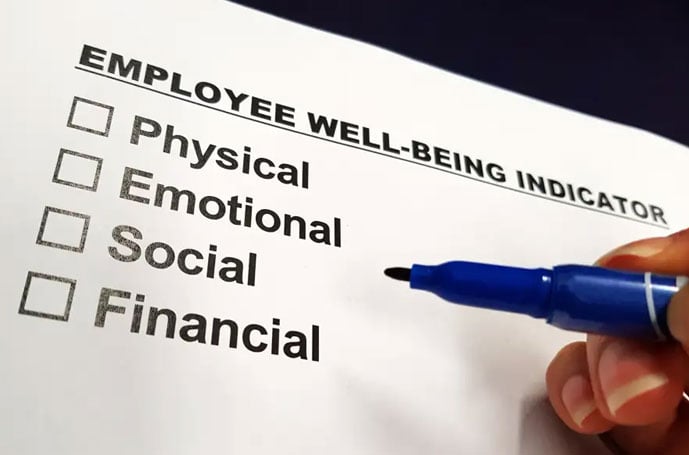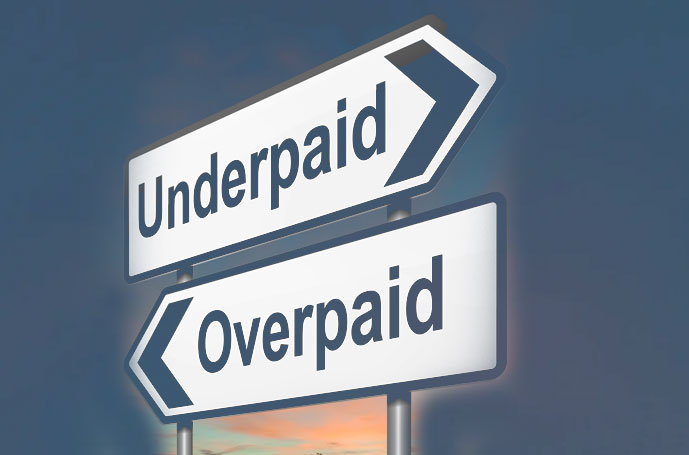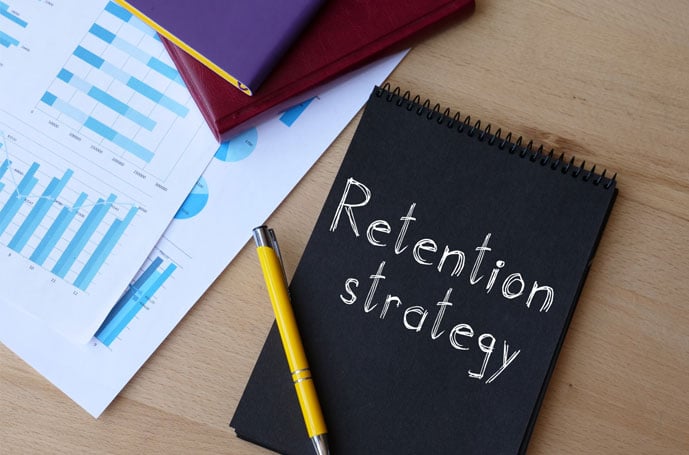We’ve all read the statistics about talent acquisition difficulties and employee quit rates reaching record levels in 2021. If you need a refresher, here’s a quick recap:
In September and October 2021 alone, 3% and 2.8% of the workforce, respectively, quit their jobs In November 2021, there were 10.6 million job openings
In response to these facts, it would be wise for organizations to get the pulse of employee expectations for the upcoming year. That said, what do Human Resource professionals need to know about the people they hire and those they’re working hard to retain?

HR leaders will need to factor increasing retention and attracting top talent into their strategies
Flexible Work Policies
A 2021 CNBC study found that as many as 76% of workers wanted flexible work options. Even before the pandemic, studies revealed a large percentage wanted flexibility (96%), with only 47% having access to this arrangement.
The message is clear: future hiring and retention practices must factor in this continued expectation. This means HR managers need to consider the impact this will have on their hiring process – especially if their organization doesn’t have formal flexible working policies in place. Such a policy should address where employees can work, what their work week looks like in terms of hours, and how many days a week they can work remotely.
Diversity
A Glassdoor study found that 67% of job seekers consider workplace diversity essential when looking for a new role. In addition, more than half of employees want their existing employer to increase workplace diversity.
More organizations are actively targeting more racially diverse talent pools. HR professionals need to remember that employees and future hires will look for evidence of positive, diverse hiring practices. In fact, 83% of executives agree that a diverse workforce improves their organization’s ability to capture and retain a more diverse client base.
For instance, things like:
- Information about diversity programs on your website
- Transparent data about your organization’s demographics, i.e., a breakdown of the race and sex of their employees
- A proven understanding of next-generation demographics. For example, of the 87 million U.S. millennials, 56% are white, compared to 72% of the 76 million baby boomers. This is important because this info provides HR pros with a better understanding of the demographic they are aiming to engage. This includes benefiting from a more accurate insight into their expectations to tailor recruitment drives accordingly.
Compensation
For HR professionals to offer competitive compensation packages that reflect the labor market and employee expectations, they need a deep understanding of those expectations.
Interestingly, a 2022 CNBC study found that many employers expect to pay employees more to retain their talent, with the Conference Board forecasting a 3.9% increase in salary costs. In other words, employees know their worth and expect their compensation package to reflect it.
To help you ensure that you’re offering a competitive salary, software like LaborIQ comes in handy. This platform provides compensation research, including salary comparisons by job, location, and industry, market-driven compensation answers for 20,000+ jobs. It also helps you create job profiles with skills and responsibilities that reflect clients’ needs.
It’s also worth noting that employees expect pay transparency and gender and race pay equity. One way to tackle this is to publish salaries and pay grades that employees can aspire to in your job ad.
Workplace Culture
Pre-pandemic, when we talked about workplace culture, common themes included social events, employee forums and a culture that relied heavily upon office attendance. But, given the demand for remote working, employees will have different expectations for workplace culture.
These include:
- Access to technology that can facilitate fast, easy communication and remote collaboration
- A bigger focus on employee well-being
- A culture where managers coach employees rather than simply evaluate their performance.
The statistics bear this out. As many as 92% of employees say recognition of their achievements is ‘very important’ to them, and millennials are 22 times more likely to remain working for an organization with a workplace culture that nurtures trust.
Employee Well-being
A Deloitte study on millennial and Gen Z employee expectations found that 41% and 46%, respectively, feel stressed all or most of the time. In light of this, it’s no wonder that employees and job seekers alike expect employers to prioritize and demonstrate their commitment to employee well-being.
One way to achieve this is to provide remote and in-person access to emotional support. In addition, while employees will continue expecting benefits like medical coverage and paid time off, they’ll also expect:
- Well-being support, including access to mental health services
- Child care options
- Time off for difficult personal issues
Environmental, Social and Governance Issues (ESG)
Compared to generations that have gone before them, millennials and Gen Z pay greater attention to how organizations respond to societal and global issues like climate change, diversity and inclusion.
This boils down to the fact that these generations want to feel part of the organization they work for, and a big part of that is sharing their values. So, for example, they may look for employers that incorporate ESG into the incentives program, including the executive level. For example, the Chipotle Mexican Grill chain has linked 10% of its executives’ annual incentives to achieving its ESG goals. One of these goals was to increase local produce to 37 million pounds by the end of 2021 and increase its diversity recruitment by hiring more women and people of color into non-restaurant roles.
Our Final Thoughts
Overall, the HR professionals keen to stay on top of talent development are most likely to succeed when considering the above-predicted expectations. Employee expectations are evolving. So, it’s essential HR professionals keep their fingers on the pulse and respond to societal changes to remain competitive.












